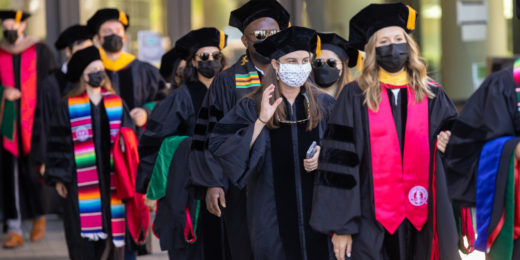Stanford researchers are developing a faster way to match each ulcerative colitis patient with the treatment that will work best for them.
Month: June 2022
Losing sleep in adolescence makes mice less outgoing as adults
Mice that had sleep interruptions during adolescence had less interest in making new friends later on, a Stanford study shows.
How does one study a deadly virus? Carefully.
Stanford Medicine researchers and others study a deadly virus -- the Nipah virus -- in a high-clearance safety laboratory.
Ask Me Anything: Brain health and cognition
Sharon Sha, Stanford Medicine neurologist discusses all things brain health and cognition in an Ask Me Anything.
Climate change impact may affect kids more severely
Researchers discuss the impact of climate change on children and suggest its impact on their health might be more severe, compared to adults.
Preventing the next pandemic from entering the US
Stanford researchers recommend changes to a report that reviewed a national screening and quarantine program for travelers coming to the US.
Researchers discuss health disparities in melanoma diagnoses
While melanoma rates have leveled off for most of the United States, Black and Latino communities are at a higher risk for the disease.
Smiles and sunshine: Stanford Medicine graduation in photos
Students celebrate their graduation from Stanford School of Medicine in person for the first time in three years.
Using AI to find disease-causing genes
Researchers are using a new artificial intelligence-based program to help identify genes that underly diseases.
Connecting health care and social services
Researchers investigate if an alliance between social assistance programs and the health care system can improve health and reduce spending.
Fulfilling a final wish: One patient’s ‘great love story’
Led by a Stanford Health Care ICU nurse, a team of health care workers helps fulfill a patient's last wish: a vow renewal.
High-risk babies don’t always get the follow-up care they need
A study shows that some high-risk infants don't receive the necessary follow up care and there are inequities in who attends the appointments.













